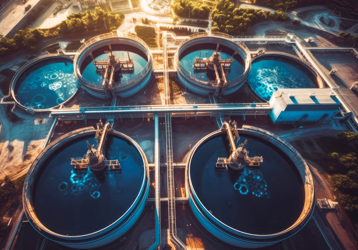Ensuring Chemical Compatibility In Water Treatment Equipment

The use of chemicals is key in many aspects of drinking water and wastewater treatment, from disinfection to pH adjustment to coagulation and more (Figure 1). The chemicals used all have specific properties and can react differently to certain materials found in water treatment equipment, such as chemical metering pumps, and throughout the plant.
Chemical and material incompatibility can lead to increased maintenance and expense due to equipment damage or failure, as well as infrastructure damage. For well-established chemicals and materials, it may already be known which are compatible with which. But for infrequently used or proprietary products, it may not be so clear.
This article will explain when and why chemical compatibility matters in water treatment applications, including what can go wrong and how to avoid it, as well as factors that can influence compatibility. It will also explore how project engineers and operators can determine compatibility in situations where it is not immediately clear.
Get unlimited access to:
Enter your credentials below to log in. Not yet a member of Water Online? Subscribe today.
